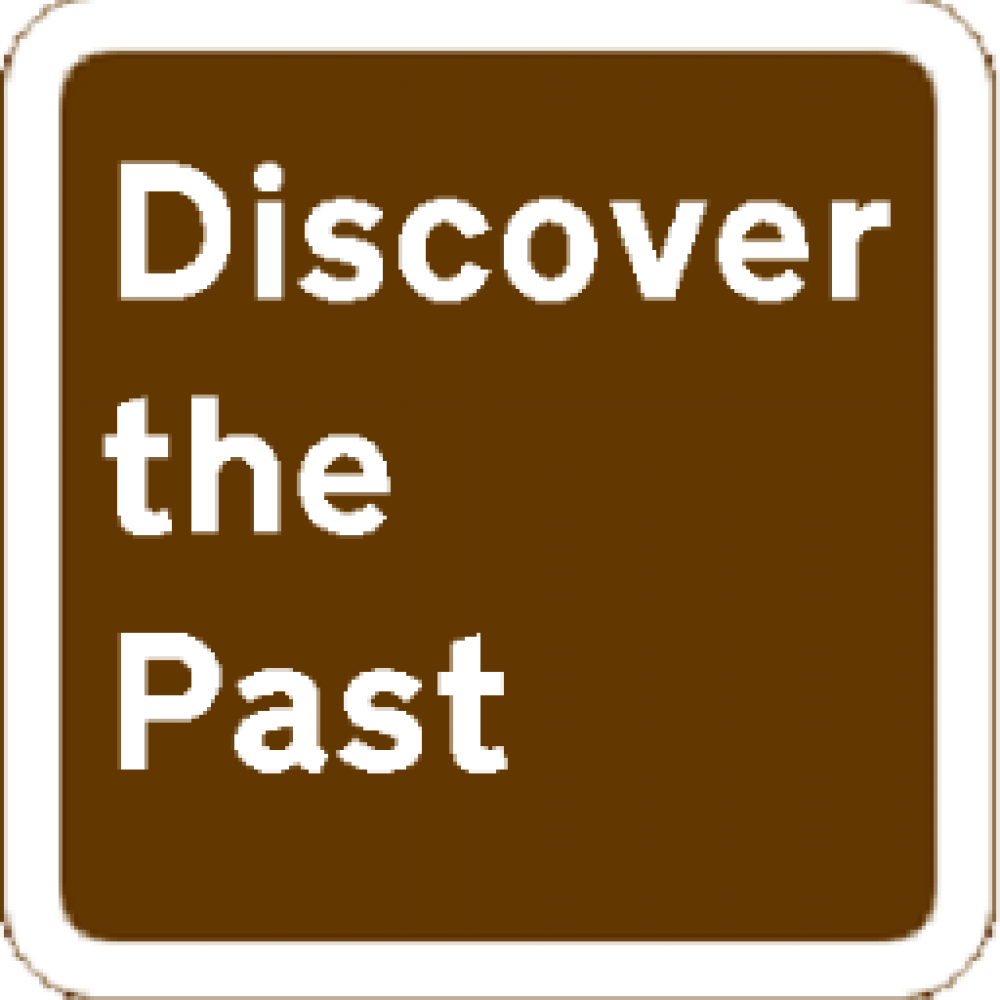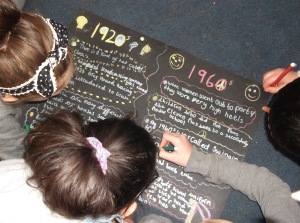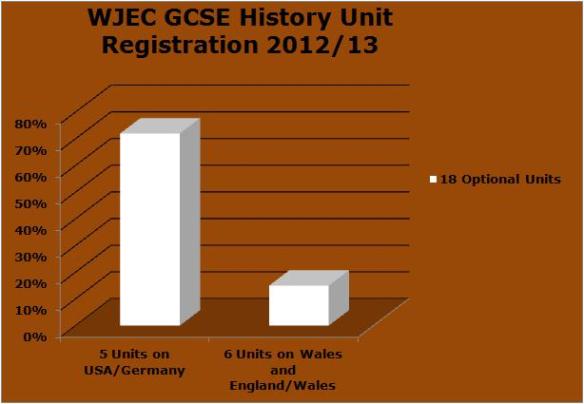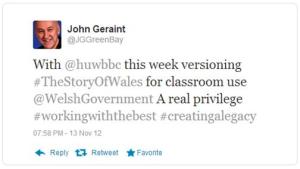Almost all of us have studied history in school. Some, I’m sure, enjoyed it more than others, and some of you are currently in education trying to remember how many wives Henry VIII had. But sift through your history textbooks, how much of an emphasis is put on Welsh history? Not enough you might say? A fair amount maybe? Perhaps even too much?! Well its place on the curriculum may very well change after the education minister, Leighton Andrews, ordered a review into the way it’s taught in school. A little over a month on it’s time to look closer at what place Welsh history should be given.
Where’s the Welsh History?
The major exam body in Wales, the WJEC, suggests that of the eighteen optional GCSE units in the its syllabus, the five units that deal with Germany or the USA account for 72% of registrations in 2012/13. On the other hand the six units that deal with ‘Wales and England’ or Wales only, account for less than 15% of registrations.
Last year around 10,000 pupils in Wales sat the WJEC GCSE history paper. All these candidates would have sat at least one unit, 25%, on aspects of the history of Wales and England. The WJEC do offer one option specifically devoted to Welsh history in the twentieth century. Only 23 candidates sat the paper, all from one centre. Although these figures only account for the WJEC GCSE history syllabus over one year, they make for interesting reading.
At the same time over the last decade there has been a significant growth in interest in the history of Wales, culminating in the BBC’s The Story of Wales with Huw Edwards. Online educational resources to support the study of Welsh history have also continued to grow. The Welsh Government has invested heavily in digitization projects through the National Library of Wales and Cymal for instance. And on November 13th The Story of Wales Director announced via Twitter that they’re versioning the series for classroom use. What better time to consider the place of Welsh history within the curriculum?
The Review
The review group, led by Dr Elin Jones, will explore and advise on the future development of the history curriculum and report back in July 2013. The 13 member group was handpicked by Dr Jones and is made up of key individuals with experience in Welsh history and its teaching. The other members of the panel are:
- Prof Angela John, Aberystwyth University;
- Dr Sian Rhiannon Williams, Cardiff Metropolitan University;
- Sion Jones, Ysgol Syr Hugh Owen;
- Dr Hugh Griffiths, Ysgol Bro Myrddin;
- Paul Nolan, History advisor;
- Nia Williams, Education Coordinator, National Museum and Galleries of Wales;
- Frank Olding, Blaenau Gwent Heritage Officer;
- Dr Stephanie Ward, Cardiff University;
- David Stacey, Olchfa Comprehensive School;
- Dr Martin Johnes, UC Swansea;
- William Rogers, Queen Street School, Blaenau Gwent;
- Nicola Thomas, Cornist Park School
‘Lack of Resources’
So is there a lack of Welsh history in the current curriculum? Andrea May, history teacher and Assistant Head at Brynteg Comprehensive School in Bridgend said: “If you actually look at the kind of materials that you get [on Welsh history] they’re not engaging for the students. You’ve got things like NGFL which I think will probably grow even more, but that relies in many respects on teachers feeding into it as well. And if it isn’t being taught you’re not going to get that share in the resources.”
She added that as children went through the year groups there is a decline in how much Welsh history is studied. In Brynteg their A-level course offers only one aspect of Welsh history, and that as part of a unit on Britain.
Overlooked
Is the teaching of Welsh history being overlooked then? Dean Powell, a local historian from Llantrisant believes it is, especially at comprehensive level. Drawing from his own experiences he said: “By the time I went to Ysgol Gyfun Llanhari [a Welsh medium comprehensive] the curriculum was far far wider and then all of a sudden you’re learning everything from the French to the Russian revolution and the rise of Nazism… but actually what you ended up losing was the Welsh history aspect.”
A School Trip
As Dean explains, today’s children are incredibly lucky to have so many resources at their disposable. To see how history is brought to life I joined Year 3 from Ysgol Gynradd Bro Eirwg in Cardiff on their school trip to St Fagans National History Museum and spoke to their teacher Mrs Bethan Elis.
Ethnic History
When the review was announced Oliver Hides on his Morning Call show on BBC Radio Wales spoke to Val Williams, a social historian and former teacher who said:
“Take Cardiff for instance; there are kids living in Cardiff whose families came from Somalia – what brought them here? What kept them here? How do they see the past of the city around them?” (Read the BBC story here)
One man who agrees with Val is Ibrahim Harbi, the National Co-ordinator of the Somali Integration Society who had this to say:
Whether the curriculum changes or not, the opportunities for school children are endless. This map shows the number of museums and places of historical interest in South East Wales. If they don’t inspire our kids then what will?!



